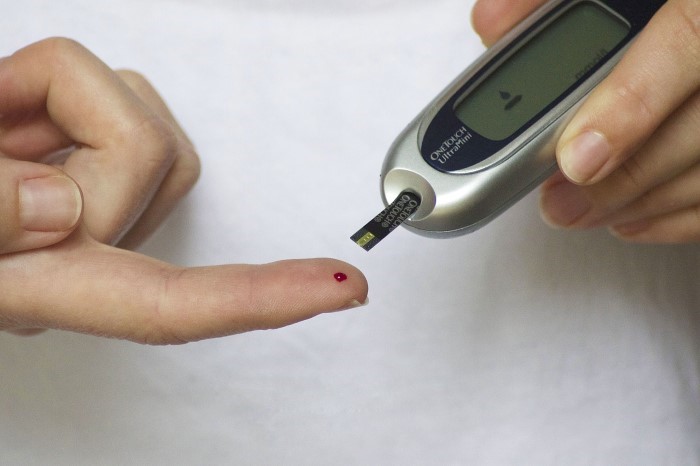
Heat and diabetes: here is the decalogue for a safe summer
From the medication kit to the insulin supply: here is the decalogue for diabetes sufferers for a safe summer
In addition to the hassle of packing and organising longer or shorter journeys, holidays can be a cause for concern for those with diabetes, due to changes in lifestyle that affect time zones, diet and social life.
DIABETES AND SUMMER: THE IMPORTANCE OF GETTING OUT OF THE ROUTINE
The day of those with diabetes has a very precise rhythm, regulated by a series of deadlines that chronicity imposes.
But does it also apply to holiday time?
Holidays are a time of year when, due to the lack of work commitments, we have the opportunity to have more time for ourselves and our lives.
The time available and the stay in holiday resorts should entice us to focus on new eating and physical habits.
This is also and especially true for people with diabetes, who are already used to following fixed rules all year round, so some dietary concessions and opportunities for physical activity other than our routine are welcome, but always with respect to controlling metabolic compensation.
Now, thanks to the invaluable support of technology, it is much easier to manage a concession at the table perhaps outside the standard time or an extra workout.
Innovative blood glucose monitoring and insulin infusion systems protect against dangerous inaccuracies that manual management could cause.
SUMMER AND DIABETES, TECHNOLOGY INDISPENSABLE SUPPORT FOR A MORE CONSCIOUS MANAGEMENT
The technological evolution of increasingly smaller and, above all, ‘smarter’ devices is proving to be a valuable support for better diabetes management.
The certainty of blood glucose measurement and the security of precise therapeutic interventions have made both the continuous blood glucose meter and the insulin infuser, two fundamental technological successes for improving everyday lifestyle, holidays included.
Blood glucose trends on holiday are difficult to predict, especially if we indulge in small indulgences without feeling guilty for doing so.
Now, thanks to the latest technology of Continuous Glucose Monitoring (Cgm), it is possible to have a very high, precise and safe level of predictivity.
This also has a calming psychological effect on patients, who are becoming more aware and ready to take action when a real need arises.
The latest generation devices are equipped with a predictive alarm system capable of anticipating the problem by offering as much as 20 minutes to intervene calmly in the treatment plan.
SUMMER, THE TEN HOLIDAY RULES FOR PEOPLE WITH DIABETES
Saying holiday means taking a break, getting rid of commitments and abandoning the clock.
It’s a mantra that can also apply to those with diabetes, as long as you bear in mind that this is a limited period, and it must be done with responsibility and control.
THE 10 RULES
1_Prepare a suitable supply of insulin in advance, preferably with a more abundant calculation of the days you will be on it (if you wear a micro, also bring a basal insulin pen to use in case of device failure);
2_Use a thermal bag as a container for the medication kit to keep the active ingredient intact, which could deteriorate in the heat;
3_Check that you always have a mini-supply (e.g. fruit juice, sugary drink, candy, slices of bread) to prevent/manage hypoglycaemia;
4_In your medication kit, don’t forget the one for hypoglycaemia emergencies (glucagon), which is now also available in a simple inhaled form and can be prescribed by your doctor;
5_Always keep in your hand luggage your medication kit, mini-luggage and certification attesting to your pathology to justify carrying needles, blades, liquids, devices;
6_If you are travelling alone or with minors, use a bracelet/ticket/certificate so that you can recognise the illness and intervene in an emergency;
7_During your stay, plan and monitor the most dynamic physical activities that could change your insulin requirements;
8_In company, make moderate use of alcohol and super-alcohol, avoiding doing so on an empty stomach;
9_If you are driving while on the move, take small breaks every hour to rest and control blood glucose levels;
10_Respect and follow the indications and alarms that the monitoring devices and/or insulin infuser indicate, without being distracted by the carefree and mundane environment.
Read Also:
Emergency Live Even More…Live: Download The New Free App Of Your Newspaper For IOS And Android
Diabetes Mellitus: Symptoms, Causes And Significance Of The Diabetic Foot
Summer And High Temperatures: Dehydration In Paramedics And First Responders
Type 2 Diabetes: New Drugs For A Personalised Treatment Approach
The Diabetic Diet: 3 False Myths To Dispel
Paediatrics, Diabetic Ketoacidosis: A Recent PECARN Study Sheds New Light On The Condition
First Aid For Dehydration: Knowing How To Respond To A Situation Not Necessarily Related To The Heat
Children At Risk Of Heat-Related Illnesses In Hot Weather: Here’s What To Do
Diabetes In Summer: Tips For Safe Holidays


